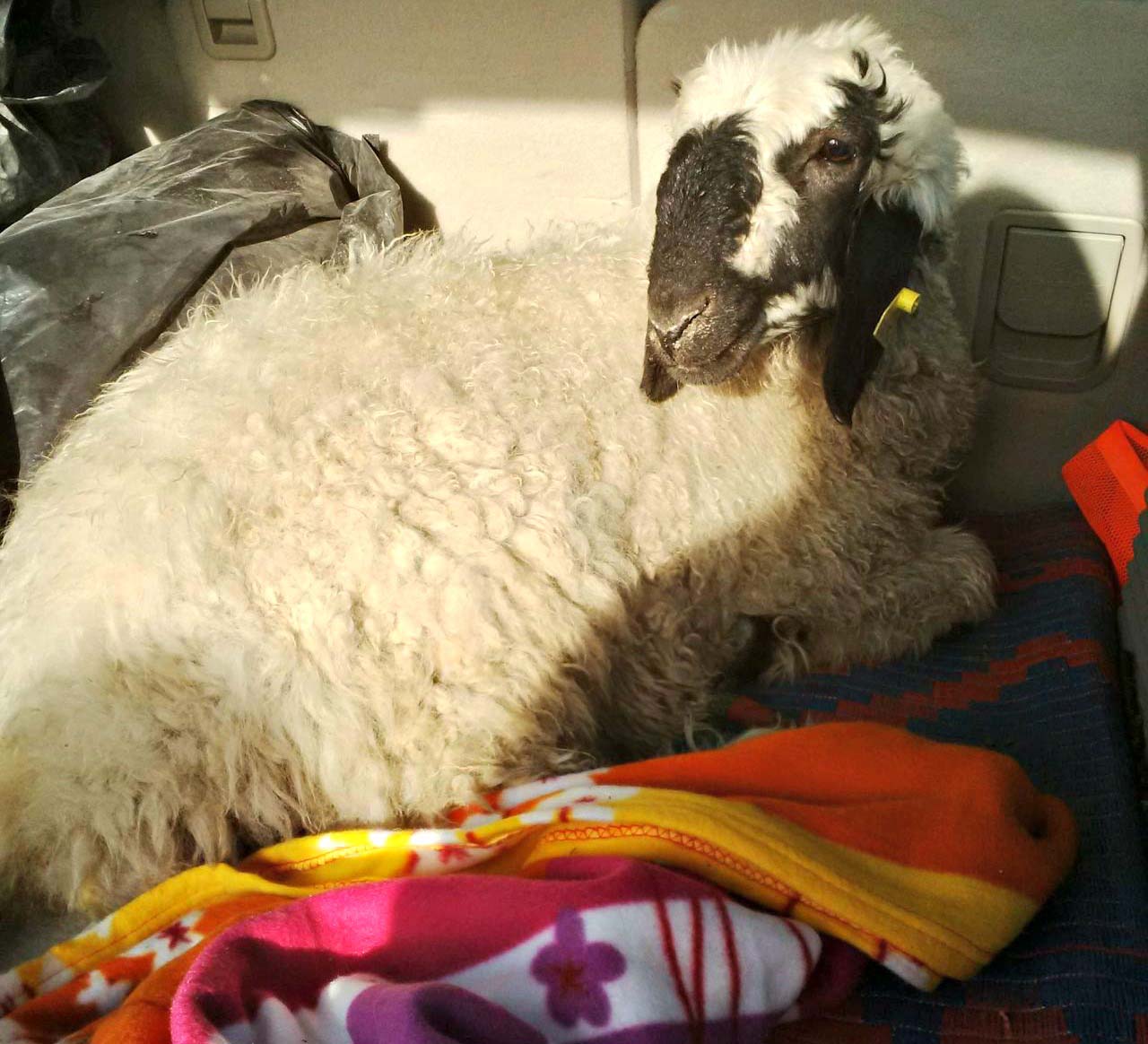
Over the past 10 years, the Qatar Animal Welfare Society has rescued thousands of stray animals, some of them more unusual than others.
Its latest addition: Shaun the sheep, an animal who was found wandering along the road outside of West Bay Lagoon late last week.

According to QAWS board member Kelly Allen, the couple who found him herded him into an under-construction villa and gave her a call for help.
“He’s a young baby – very sweet and once I put a lead on him he just followed me straight to the car,” Allen told Doha News.
Since no one has claimed him – the going theory is that he was supposed to be someone’s dinner – Shaun has been set up in the same space as the shelter’s other farm animals.
That includes Daisy the goat, Bella the donkey and Ferdinand the cow.
According to Allen, the sheep is far from the shelter’s most peculiar rescues.
“We have 10 years worth of strange..stories! Baboons on building sites, donkeys in gardens, iguanas, goats, falcons, owls etc!
A lot of people think we’re just dogs and cats, but we have the farm animals (chickens, ducks, geese, pigeons etc) and the monkey and falcon and super gliders. They’re not all up for adoption but we either keep them for educational visits or we find them suitable places to go abroad (like the monkey).”
Difficult endeavor
Animal rescue in Qatar is a largely decentralized practice.
Though the government has been working to build a state-run animal shelter to house the stray cats and dogs it takes off the streets, that project still has no completion date.
Meanwhile, the five private rescue centers here that care for abandoned animals have said that they are rapidly running out of space and money.

This hasn’t deterred many volunteers, however, from continuing to take in strays.
QAWS is Qatar’s largest animal shelter, and also one of its oldest. It has been through rocky times in recent years, almost losing its lease on its farm just west of Doha in 2013.
Opened in 2003, the shelter had to be rebuilt in 2009 after a fire leveled the entire facility.
Now, it once again provides abandoned dogs, cats, rabbits and other animals with food, medical attention and regular care as they await permanent homes.
Currently, the shelter cares for around 250 animals, including 120 dogs and puppies, 70 cats and kittens and 14 rabbits, and other less common strays like Shaun, Allen said.
Because it is an all-volunteer endeavor, the shelter often seeks contributions of time and funds from members of the community, who are invited to take the dogs for a walk or sponsor an animal for a small donation a month.
For more information on how to help, visit the shelter’s website here, and learn about Qatar’s other animal rescue groups here.
Thoughts?







